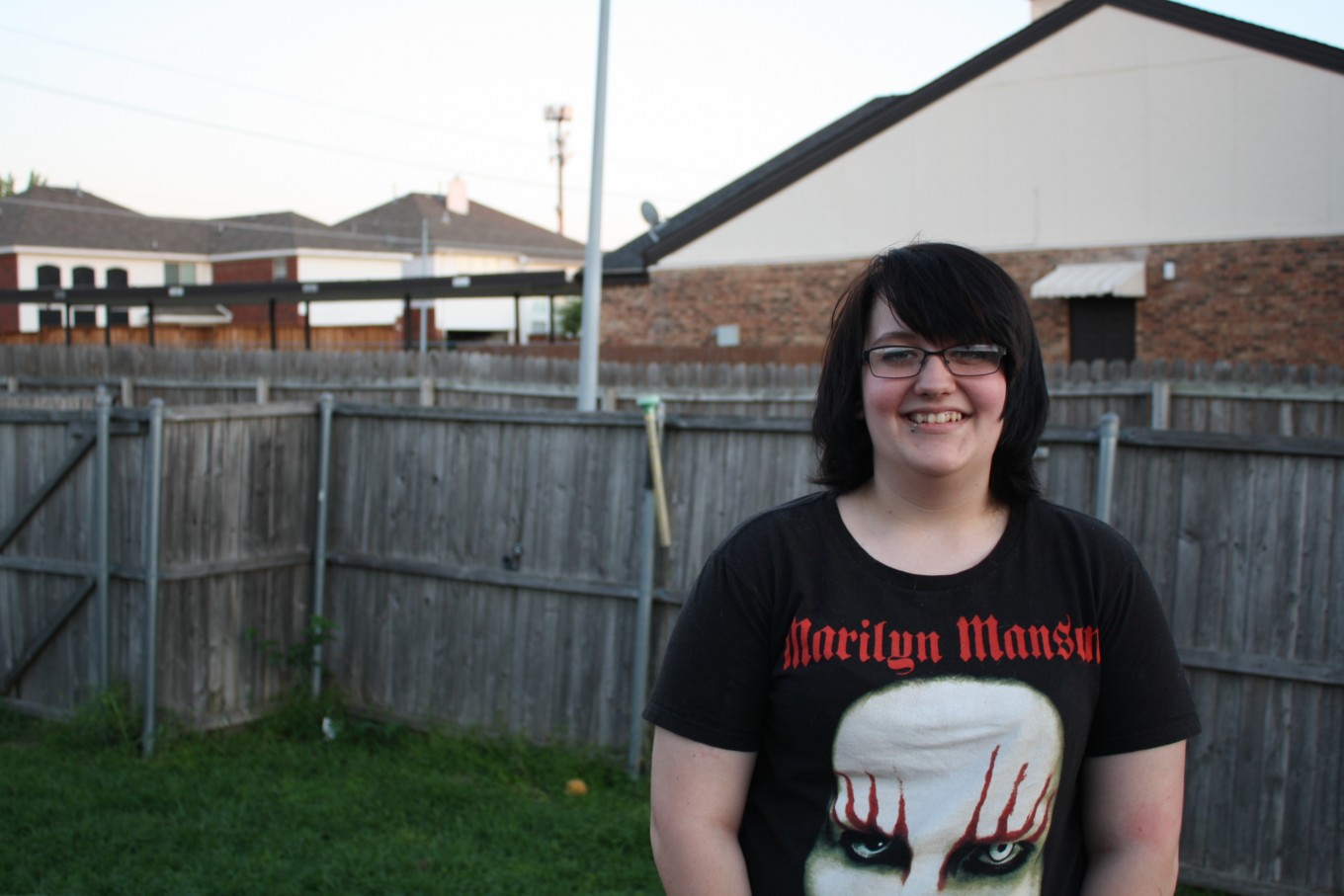 Brooke Ronk dropped out of high school. Then she enrolled at the Lewisville Learning Center. Photo/Stephanie Kuo
Brooke Ronk dropped out of high school. Then she enrolled at the Lewisville Learning Center. Photo/Stephanie Kuo
Stories Of Homelessness In North Texas
North Texans share their experiences of being homeless — or on the brink of homelessness.
Monica De La Cruz
‘Mommy, when are we going to get our own place?’
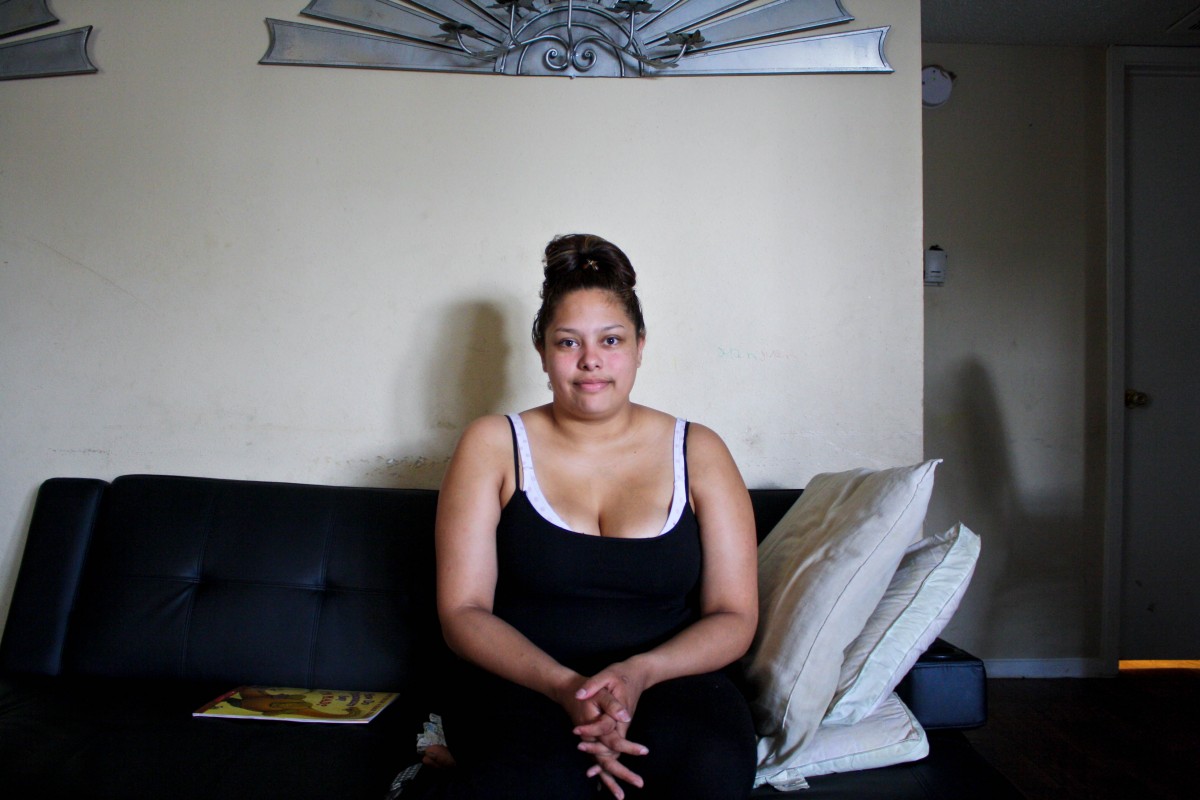
Monica De La Cruz graduated from Night High School in Lewisville, a second-chance program for high school dropouts. Photo/Stephanie Kuo
Monica De La Cruz was just 15 when she got pregnant and married. A year later, she gave birth to her second son. A year after that, she had her third child. Since 2008, she’s bounced from her mother’s house to her in-laws’ house, and from her own apartment to a hotel.
She was also in and out of high school. She says all she’s ever wanted was to give her three young boys a good home.
In March, at 22, she graduated from Night High School in Lewisville, a second-chance program for high school dropouts. De La Cruz works at a Dairy Queen and plans to save up for an apartment and go to nursing school.
Before we go to sleep, we lay two blankets on the floor and we put the pillows down and turn the TV off. When we get up in the morning, we have to get up and put all the blankets and put everything away and pick up our clothes; it’s frustrating.
We don’t have no money for gas or food. It’s kind of hard. My kids are like, ‘Mommy, when are we going to get our own place, so I can get my own room, my own this, our own car?’ And it was just like, I have to do something. They want their own room; they want their own stuff; they want everything, you know? To be a happy little family with their own little home.
Out there, there are a lot of young kids, like a lot of teenagers and young mothers, who have to go from home to home—that’s what I’ve been doing since I had my kids. We go from my mom’s house to our own place to my mother-in-law’s— like we’re back and forth. And it was just like a lot going on, and finally, I was like, ‘I need to get my head straight.’ That’s why I went back to school.
I want my kids, I want my husband, I want us to be a happy family. I want to be an adult and become more of a mother and a wife. It was hard and it was a struggle and it was a hassle, especially with three kids. It was a real hassle because I had to get myself ready and then get them ready in the mornings, and it was just a lot of work.
My boys kept me motivated to finish school, to do good and do right, and you know, I did. Toward the end me finishing school, my kids were like, ‘Mommy, did you graduate already?’ And I was like, ‘yes baby, I finally did.’
They were always telling me, ‘Mom, you gotta go to school, OK? Don’t forget, you gotta go to school right now, OK?’ And, finally, I said ‘OK, baby, I will.’ And I did.
Brooke Ronk
‘I thought everything was disappearing. It was a really difficult time.’
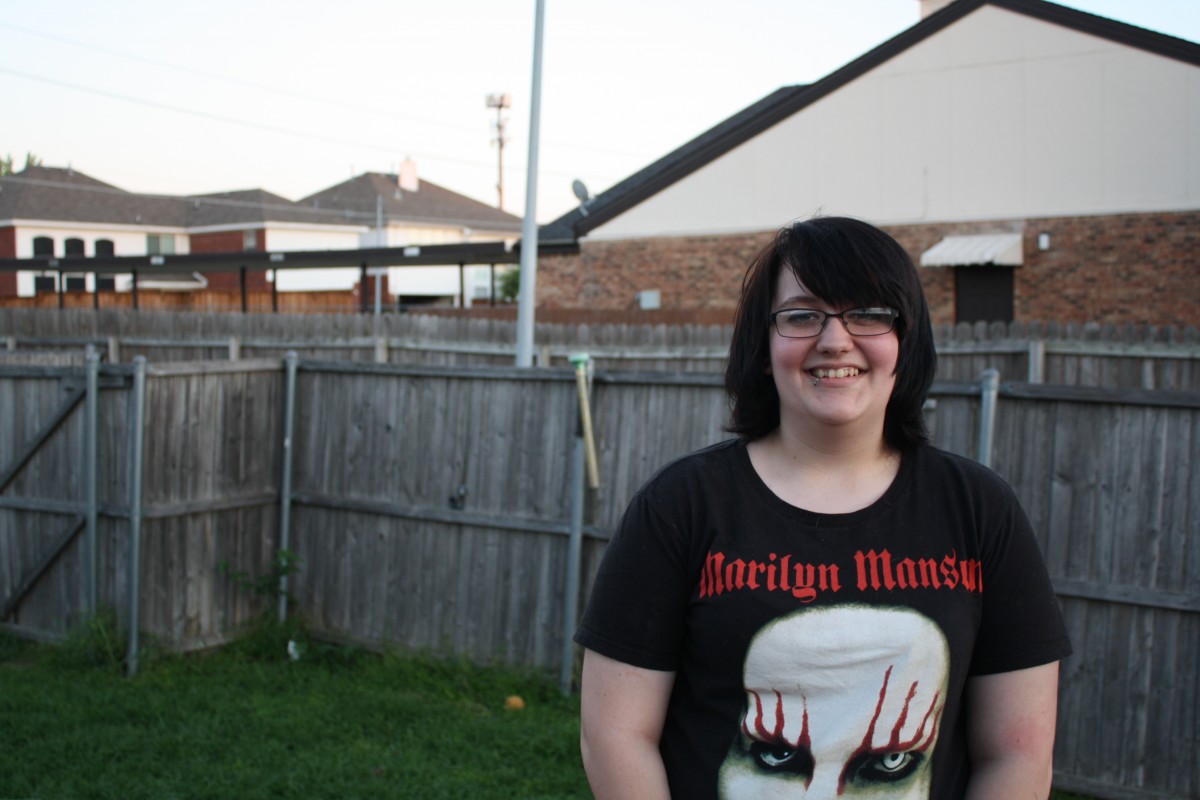
Brooke Ronk dropped out of high school. Then she enrolled at the Lewisville Learning Center. She’s graduating from high school this summer. Photo/Stephanie Kuo
Brooke Ronk was about 4 years old when her parents split up. Since then, she and her mother have bounced around, living with relatives or at a hotel. They finally had their own home in Dallas. But then she discovered her mother’s drug problem. Ronk dropped out of high school. Three months later, the 18-year-old enrolled at the Lewisville Learning Center. She’s graduating from high school this summer and wants to become a forensic psychologist. She lives with her sister in The Colony.
A year ago, when my mom and I had been living in an apartment on our own, she had started up drug use. Things got really rough. I could see my mom going downhill. She pretty much lost everything we had owned all together, and I always ended up trying to have to find a place.
My mom is the one who actually took me away from school and decided that I wouldn’t be able to get back into high school. I didn’t think I would graduate; I didn’t think I would have a good job. I thought everything was disappearing. It was a really difficult time. It kind of hurt a lot being unenrolled, not knowing what was going to happen next or who I was going to be around.
I started going to the Lewisville Learning Center the day that I turned 18. It was actually a really great thing; it was nice to start school again. I was still having issues finding where to live when I started at the Learning Center. It was iffy about where I was staying; it would either be at my sister’s house or between friends from Lewisville across from where the school is.
I did have a lot of anxiety problems whenever I couldn’t figure out where I was going to stay on certain nights or how I was going to be getting to school or if I would even being going home that night—to a home—and I always had to come up with something—like make 1,000 phone calls, any family that I could stay with possibly.
Knowing that I’m going through school now and going to get a diploma is really calming, knowing that I’m probably going to be able to get in a better place. After all that’s happened with my mom, I still want to help her because she’s my mom, and no matter what, she’s always going to be my mom.
I can’t push her out of my life even though she had tried to push me and my sister out of hers. It’s nice knowing that’s she’s going to have someone there.
Josh Hamilton
‘I’m living proof that there is a way out.’
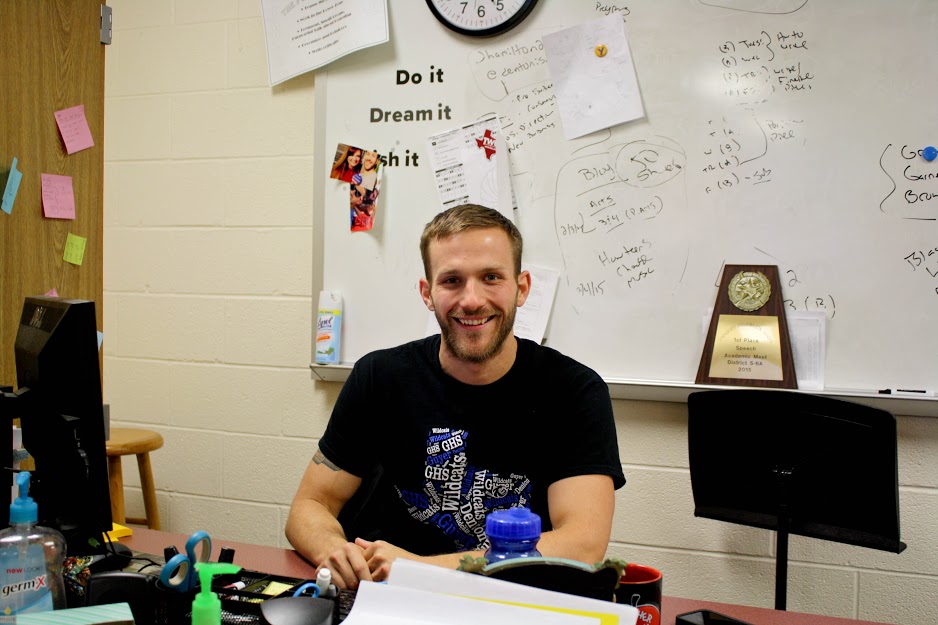
Josh Hamilton is a teacher at Guyer High School in Denton. Photo/Stephanie Kuo
Josh Hamilton is a teacher at Guyer High School in Denton. Hamilton, 28, has worked in poor inner-city schools and affluent suburban schools, and says he’s not surprised poverty and homelessness exist in both. He’s come to recognize the so-called “red flags” of kids in trouble and advocate for them—mainly because he, too, lived on the brink as a teen. He lived with his mother and brother in a decrepit mobile home for much of his life. Now he’s a mentor for homeless and at-risk students.
People see homelessness as a poverty issue, and because we don’t have poverty at our school, maybe somehow we don’t have homelessness. That’s not true. We have poverty; we have homelessness.
I remember working with a kid just the other day who was homeless, living in his truck behind our school for two weeks and nobody noticed. How does no one notice? We live in a very affluent community, million-dollar houses half a mile away from where we are, and we have kids sleeping in their cars. How did a teacher not catch this? How did an administrator, how did a principal? If this person is homeless, there’s no family support. When the family is no longer there, it’s on us. You signed up to be a mentor, a teacher, a family member — I mean, that’s our job.
My mom would be the first to admit that we were constantly on the brink of near-homelessness. We would be scraping it together last-minute just to pay the rent. Unfortunately, I coped like a lot of kids my age do — negatively. I did drugs, I got into fights, I drank because I felt like that’s what society wanted me to do.
So I try to leave kids with that note. When I’m talking to students, I’m like, “your current situation may suck. You may think there’s no way out.” But I would tell you that I’m living proof that there is a way out. I’m now happily married; I own my own home; I have a car. I have all the things I guess you would say in the American Dream one might have. I love my job; I love going to work; I’m working on my Ph.D.
The reason that I believe genuinely I’m on this earth is to hear stories like that–because those stories are important. But we’re never going to hear those stories unless we pay attention. Look at your best friend, look at your neighbor, look at your students, and ask yourself if you genuinely care about that person, how much do you really know about them?
Darek Lynch-Long
‘Just because you become homeless doesn’t mean this is hopeless.’
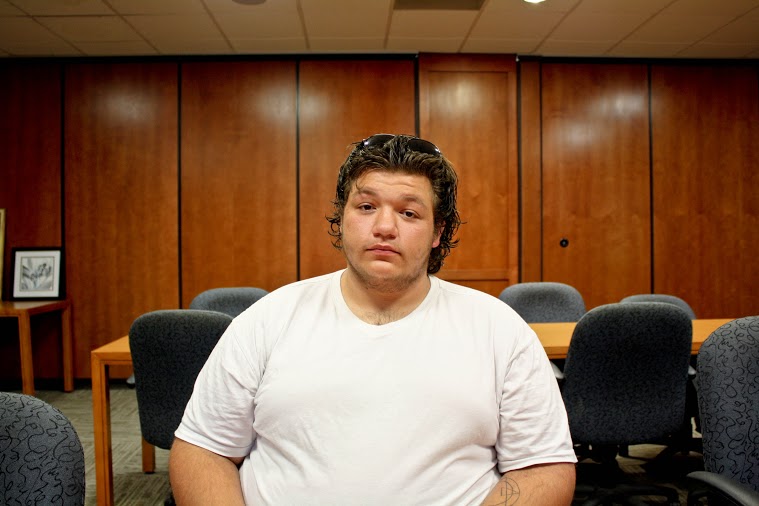
Darek Lynch-Long, 20, lives at Union Gospel Mission, or UGM, in Fort Worth and trains as a cook at the area food bank. Photo/Stephanie Kuo
Darek Lynch-Long failed out of high school when he was 15. Then he bounced around between relatives and friends, working odd jobs. When he was 18 and had nowhere else to go, he turned himself in for stealing a birthday present — so he’d have a warm place to sleep. After getting out of jail and sleeping on the streets and behind grocery stores, he found shelter at Union Gospel Mission, or UGM, in Fort Worth. Lynch-Long, 20, trains as a cook at the area food bank.
At first I had walked around the mall, and then the mall started to close, and I tried to get ahold of a few people because I didn’t have a blanket or jacket. No one would answer their phone and the people that did said they would come pick me up. But after two hours, they stopped answering their phones.
After that, I walked by a church and laid in the grass, and it got too cold to lay there, so I found out where the nearest jail was so I could get warm. I didn’t have anywhere else to go. I had to go to the jail because it was too cold, and I knew that would be the only place that would take me. He just kind of looked at me like, “Why are you turning yourself in? It’s a misdemeanor.”
It was around my girlfriend’s birthday, and I didn’t have any money. All the money was going to bills at my place, and I wanted to get her something for her birthday. I think it was a birthday card and a few miscellaneous things that I really don’t remember anymore. It just wasn’t even worth stealing.
I just told him I wanted to do the right thing and turn myself in. I didn’t really want to tell him that I was homeless and didn’t want to stay out in the cold. I was at the Arlington jail for one or two days, and then after that, they transferred me over to Tarrant County. I was there for two to three weeks, and I got out of jail on my birthday when I turned 19.
Once I got here to UGM, I joined Community Kitchen just to find a way to get a job to get out of here. You get up by 9 — or you get up before then to go eat breakfast around 8 o’clock. You get up; you either go to the chore that you do here or you talk to your case manager. Your case manager helps you go find jobs weekly; they’ll help you get bus passes to go to interviews; they’ll help you make your resume.
I feel like my life is coming together a lot more than before. Hopefully, I won’t be here much longer with the way I’m going right now. Just because you become homeless doesn’t mean this is hopeless. People get out of their situations. When you give up, that’s when you get stuck here. And as long as you keep trying to find ways to get out of here, then you will get out.
Jeremy Orosco
“I live by this phrase: ‘Today, I am a better man. I will be a better man.'”
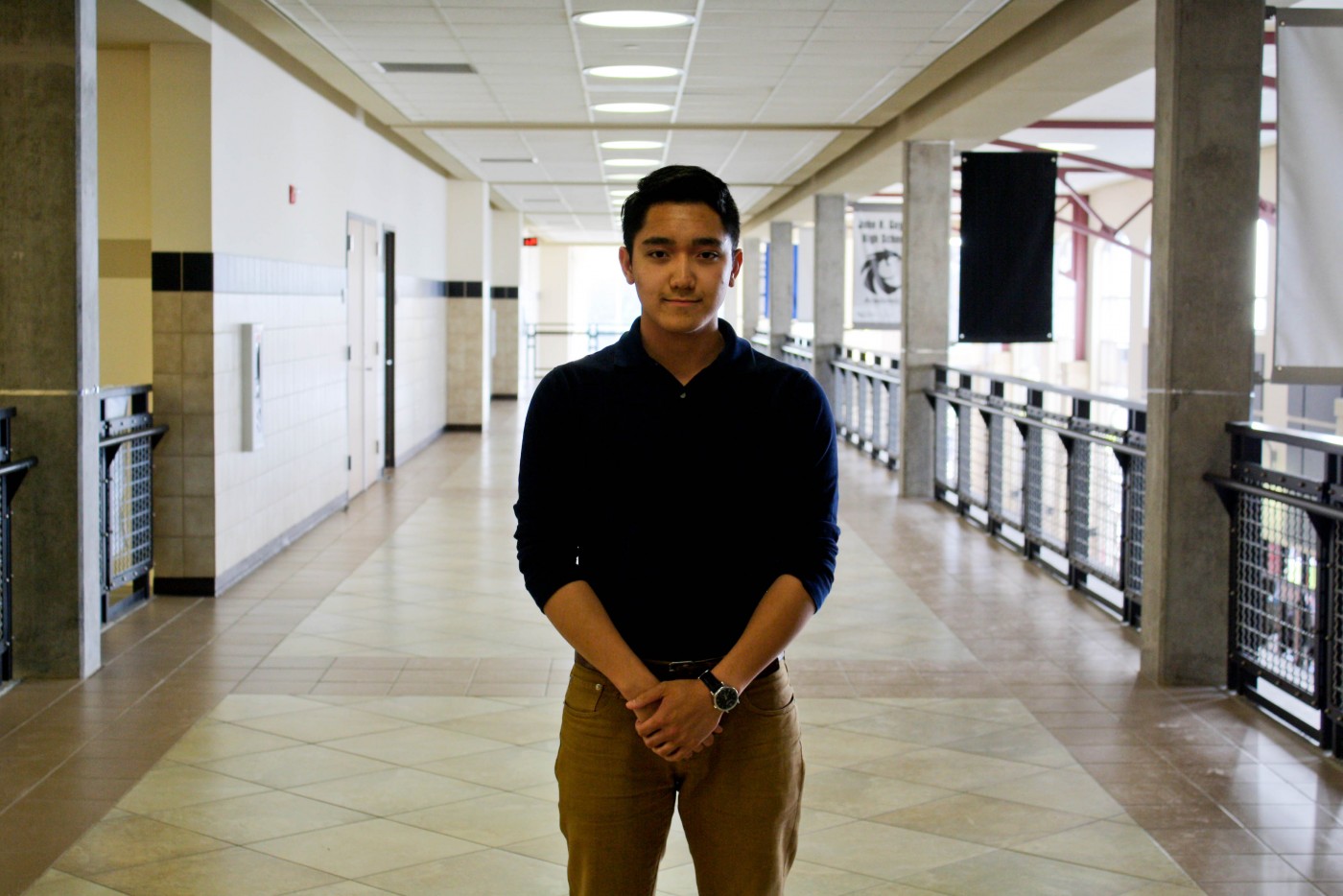
During his final semester at Guyer High School in Denton, Jeremy Orosco became homeless. Photo/Stephanie Kuo
During Jeremy Orosco’s final semester at Guyer High School in Denton, he became homeless. For years, his adoptive father — his great uncle — had struggled with his own alcoholism, unemployment and health troubles. In January, he kicked Jeremy out. The 18-year-old says it was tough, but his friends and his own will to succeed pushed him forward.
For years, I’ve always heard, “You’ll be 18. You’re old enough. I’ll kick you out; leave.” It’s very hard for a child, any child, but having to be adopted and then having that guardian — someone who you care for and who cared for you — to say “leave,” to cast cast you away like trash, it’s disheartening. It reaches the very core of your existence of: “Why is this happening? Who really loves me?”
My friends, they helped me find a home, staying with their family, sleeping on the floor while going to school and trying to make decent grades — just dealing with the displacement of being in high school, a senior, and basically having the clothes on your back to go house to house.
I wanted to make my life better. I’ve seen a lot of stories of where people have the cycle over and over of abuse, of alcohol and drugs, and I didn’t want to fall into that cycle. I worked hard, I stay motivated, and I live by this phrase: “Today, I am a better man. I will be a better man.”



